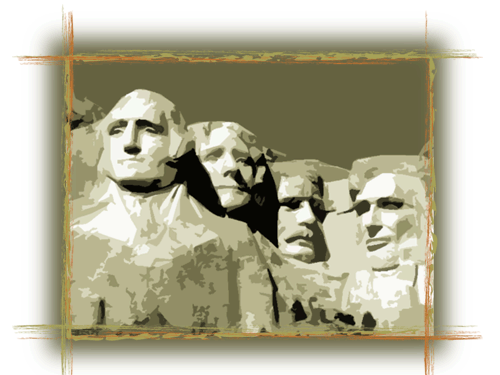On the 70th anniversary of the end of the war, we must calmly reflect upon the road to war, the path we have taken since it ended, and the era of the 20th century. We must learn from the lessons of history the wisdom for our future.
More than one hundred years ago, vast colonies possessed mainly by the Western powers stretched out across the world. With their overwhelming supremacy in technology, waves of colonial rule surged toward Asia in the 19th century. There is no doubt that the resultant sense of crisis drove Japan forward to achieve modernization. Japan built a constitutional government earlier than any other nation in Asia. The country preserved its independence throughout. The Japan-Russia War gave encouragement to many people under colonial rule from Asia to Africa.
After World War I, which embroiled the world, the movement for self-determination gained momentum and put brakes on colonization that had been underway. It was a horrible war that claimed as many as ten million lives. With a strong desire for peace stirred in them, people founded the League of Nations and brought forth the General Treaty for Renunciation of War. There emerged in the international community a new tide of outlawing war itself.
At the beginning, Japan, too, kept steps with other nations. However, with the Great Depression setting in and the Western countries launching economic blocs by involving colonial economies, Japan’s economy suffered a major blow. In such circumstances, Japan’s sense of isolation deepened and it attempted to overcome its diplomatic and economic deadlock through the use of force. Its domestic political system could not serve as a brake to stop such attempts. In this way, Japan lost sight of the overall trends in the world.
With the Manchurian Incident, followed by the withdrawal from the League of Nations, Japan gradually transformed itself into a challenger to the new international order that the international community sought to establish after tremendous sacrifices. Japan took the wrong course and advanced along the road to war.
And, seventy years ago, Japan was defeated.
On the 70th anniversary of the end of the war, I bow my head deeply before the souls of all those who perished both at home and abroad. I express my feelings of profound grief and my eternal, sincere condolences.
More than three million of our compatriots lost their lives during the war: on the battlefields worrying about the future of their homeland and wishing for the happiness of their families; in remote foreign countries after the war, in extreme cold or heat, suffering from starvation and disease. The atomic bombings of Hiroshima and Nagasaki, the air raids on Tokyo and other cities, and the ground battles in Okinawa, among others, took a heavy toll among ordinary citizens without mercy.
Also in countries that fought against Japan, countless lives were lost among young people with promising futures. In China, Southeast Asia, the Pacific islands and elsewhere that became the battlefields, numerous innocent citizens suffered and fell victim to battles as well as hardships such as severe deprivation of food. We must never forget that there were women behind the battlefields whose honour and dignity were severely injured.
Upon the innocent people did our country inflict immeasurable damage and suffering. History is harsh. What is done cannot be undone. Each and every one of them had his or her life, dream, and beloved family. When I squarely contemplate this obvious fact, even now, I find myself speechless and my heart is rent with the utmost grief.
The peace we enjoy today exists only upon such precious sacrifices. And therein lies the origin of postwar Japan.
We must never again repeat the devastation of war.
Incident, aggression, war — we shall never again resort to any form of the threat or use of force as a means of settling international disputes. We shall abandon colonial rule forever and respect the right of self-determination of all peoples throughout the world.
With deep repentance for the war, Japan made that pledge. Upon it, we have created a free and democratic country, abided by the rule of law, and consistently upheld that pledge never to wage a war again. While taking silent pride in the path we have walked as a peace-loving nation for as long as seventy years, we remain determined never to deviate from this steadfast course.
Japan has repeatedly expressed the feelings of deep remorse and heartfelt apology for its actions during the war. In order to manifest such feelings through concrete actions, we have engraved in our hearts the histories of suffering of the people in Asia as our neighbours: those in Southeast Asian countries such as Indonesia and the Philippines, and Taiwan, the Republic of Korea and China, among others; and we have consistently devoted ourselves to the peace and prosperity of the region since the end of the war.
Such position articulated by the previous cabinets will remain unshakable into the future.
However, no matter what kind of efforts we may make, the sorrows of those who lost their family members and the painful memories of those who underwent immense sufferings by the destruction of war will never be healed.
Thus, we must take to heart the following.
The fact that more than six million Japanese repatriates managed to come home safely after the war from various parts of the Asia-Pacific and became the driving force behind Japan’s postwar reconstruction; the fact that nearly three thousand Japanese children left behind in China were able to grow up there and set foot on the soil of their homeland again; and the fact that former POWs of the United States, the United Kingdom, the Netherlands, Australia and other nations have visited Japan for many years to continue praying for the souls of the war dead on both sides.
How much emotional struggle must have existed and what great efforts must have been necessary for the Chinese people who underwent all the sufferings of the war and for the former POWs who experienced unbearable sufferings caused by the Japanese military in order for them to be so tolerant nevertheless?
That is what we must turn our thoughts to reflect upon.
Thanks to such manifestation of tolerance, Japan was able to return to the international community in the postwar era. Taking this opportunity of the 70th anniversary of the end of the war, Japan would like to express its heartfelt gratitude to all the nations and all the people who made every effort for reconciliation.
In Japan, the postwar generations now exceed eighty per cent of its population. We must not let our children, grandchildren, and even further generations to come, who have nothing to do with that war, be predestined to apologize. Still, even so, we Japanese, across generations, must squarely face the history of the past. We have the responsibility to inherit the past, in all humbleness, and pass it on to the future.
Our parents’ and grandparents’ generations were able to survive in a devastated land in sheer poverty after the war. The future they brought about is the one our current generation inherited and the one we will hand down to the next generation. Together with the tireless efforts of our predecessors, this has only been possible through the goodwill and assistance extended to us that transcended hatred by a truly large number of countries, such as the United States, Australia, and European nations, which Japan had fiercely fought against as enemies.
We must pass this down from generation to generation into the future. We have the great responsibility to take the lessons of history deeply into our hearts, to carve out a better future, and to make all possible efforts for the peace and prosperity of Asia and the world.
We will engrave in our hearts the past, when Japan attempted to break its deadlock with force. Upon this reflection, Japan will continue to firmly uphold the principle that any disputes must be settled peacefully and diplomatically based on the respect for the rule of law and not through the use of force, and to reach out to other countries in the world to do the same.
As the only country to have ever suffered the devastation of atomic bombings during war, Japan will fulfil its responsibility in the international community, aiming at the non-proliferation and ultimate abolition of nuclear weapons.
We will engrave in our hearts the past, when the dignity and honour of many women were severely injured during wars in the 20th century. Upon this reflection, Japan wishes to be a country always at the side of such women’s injured hearts. Japan will lead the world in making the 21st century an era in which women’s human rights are not infringed upon.
We will engrave in our hearts the past, when forming economic blocs made the seeds of conflict thrive. Upon this reflection, Japan will continue to develop a free, fair and open international economic system that will not be influenced by the arbitrary intentions of any nation. We will strengthen assistance for developing countries, and lead the world toward further prosperity. Prosperity is the very foundation for peace. Japan will make even greater efforts to fight against poverty, which also serves as a hotbed of violence, and to provide opportunities for medical services, education, and self-reliance to all the people in the world.
We will engrave in our hearts the past, when Japan ended up becoming a challenger to the international order. Upon this reflection, Japan will firmly uphold basic values such as freedom, democracy, and human rights as unyielding values and, by working hand in hand with countries that share such values, hoist the flag of “Proactive Contribution to Peace,” and contribute to the peace and prosperity of the world more than ever before.
Heading toward the 80th, the 90th and the centennial anniversary of the end of the war, we are determined to create such a Japan together with the Japanese people.
August 14, 2015
Shinzo Abe
Prime Minister of Japan
注・英訳は日本政府の発表による








